The festival will also award the Espiga of Honor to actress Kiti Mánver and winemaker Raúl Pérez, and will recognize the career of photographer Cristina García Rodero with a Special Award for Artistic Creation
RTVE will have a prominent role on the occasion of the 25th anniversary of the film programs Versión Española (TVE) and De Película (RNE), which will record at Seminci the programs celebrating this anniversary
In the framework of the election of Valladolid as organizer of the Goya Awards, the Film Academy hosts the presentation of the festival at its headquarters in Madrid
Music will be a fundamental part of Seminci with Alhambra Seminci Noche, a full program of concerts and DJs in different venues around the city, and the return of the live music screening of the Orquesta Sinfónica de Castilla y León
The award-winning international actresses Charlotte Rampling and Nathalie Baye will receive the Espiga de Honor of the 68th International Film Festival of Valladolid (Seminci) in recognition of the careers of two of the performers who, for several decades, have been a reference in European cinema. The festival will also present the Espiga de Honor to Spanish actress Kiti Mánver to reward a tireless career spanning five decades, a tribute that will precede the Seminci premiere of her new film, Mamacruz.
British actress Charlotte Rampling, one of her last works, debuted with the Beatles’ musical comedy A Hard Day’s Night (1964) and, five years later, landed the first major role of her career with Luchino Visconti’s The Fall of the Gods. Since she rose to fame in 1974 with Liliana Cavani’s The Night Porter, the actress has appeared in around a hundred films in Europe and the United States and has won awards such as the honorary César (2001), the European Film Award for Swimming Pool, by François Ozon, and the Silver Bear, the Best Actress Award at Seminci and the Oscar nomination for Andrew Haigh’s 45 Years, in addition to the Honorary European Film Academy Award and the Volpi Cup for Best Actress at Venice for Hannah (Andrea Pallaoro, 2017).
Her intense filmography is punctuated with unforgettable roles at the hands of masters such as Woody Allen (Stardust Memories, 1980), Nagisa Oshima (Max, mon amour, 1986), Lauren Cantet (Southbound, 2006) or Lars von Trier (Melancholia, 2011), and she has alternated auteur cinema, sometimes controversial, with blockbuster productions such as the post-apocalyptic Zardoz (John Boorman, 1974), Orca, the Killer Whale (Michael Anderson, 1977), Final Verdict (Sidney Lumet, 1982), The Angel’s Heart (Alan Parker, 1987), Spy Game (Tony Scott, 2001) or Dune (Denis Villeneuve, 2021 and 2024), among many others. Rampling will collect her award in Valladolid during the Closing Gala, where the film Juniper (Matthew J. Saville), in which she stars, will be screened.
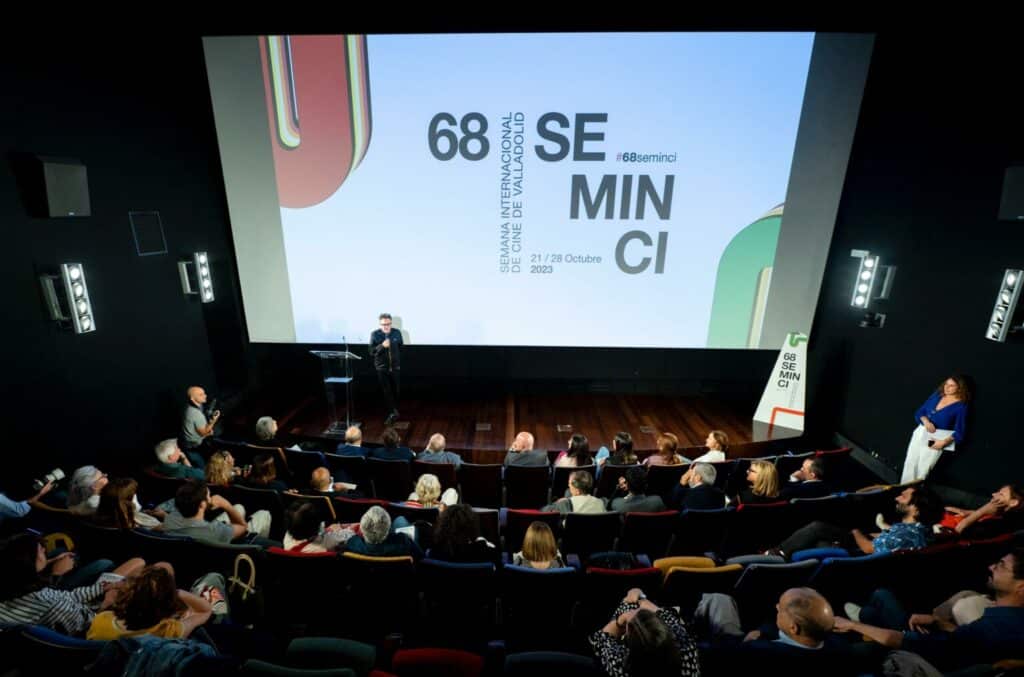
The Film Academy hosted at its headquarters in Madrid on Wednesday the presentation of the 68th Seminci, which will give another of its Espigas de Honor to the versatile French performer Nathalie Baye, to whom François Truffaut gave his big break in The American Night (1973). Winner of the Volpi Cup for Best Actress at the Venice Film Festival for A Private Relationship; of four César Awards for Bob Swaim’s The Quince, Xavier Beauvois’ The Little Lieutenant, Hail who may (Life) and Pierre Granier-Deferre’s Une étrange affair and the Silver Shell for Best Actress at San Sebastian for Martial Fougeron’s My Son, Baye has become one of the most renowned and sought-after actresses in France, but also in the rest of Europe and in America.
Baye has worked with some of the most important directors in the French industry, such as Jean-Luc Godard (Hail who may [life], 1980; Detective, 1985); Maurice Pialat (The Open Mouth, 1974); Bertrand Tavernier (A Week’s Vacation, 1980); Tonie Marshall (Venus, Beauty Salon, 1999); Daniel Vigne (The Return of Martin Guerre, 1982) or Claude Chabrol (The Flower of Evil, 2003). And outside his country he has also tasted success thanks to films such as Catch Me If You Can (Steven Spielberg, 2002) or Laurence Anyways (Xavier Dolan, 2012).
Kiti Mánver, Raúl Pérez, Cristina García Rodero
The 68th Seminci will also award the Espiga de Honor to the Malaga actress Kiti Mánver, a tireless performer who in the last half century has participated in more than 50 films, some under the orders of filmmakers such as Pedro Almodóvar, Fernando Trueba, Álex de la Iglesia, Fernando Colomo or Manuel Gutiérrez Aragón. Mánver lands this year in Valladolid with Mamacruz, by Patricia Ortega, screened out of competition in the Official Selection and where she gives life to an elderly woman who, by chance, rediscovers pleasures she thought she had forgotten.
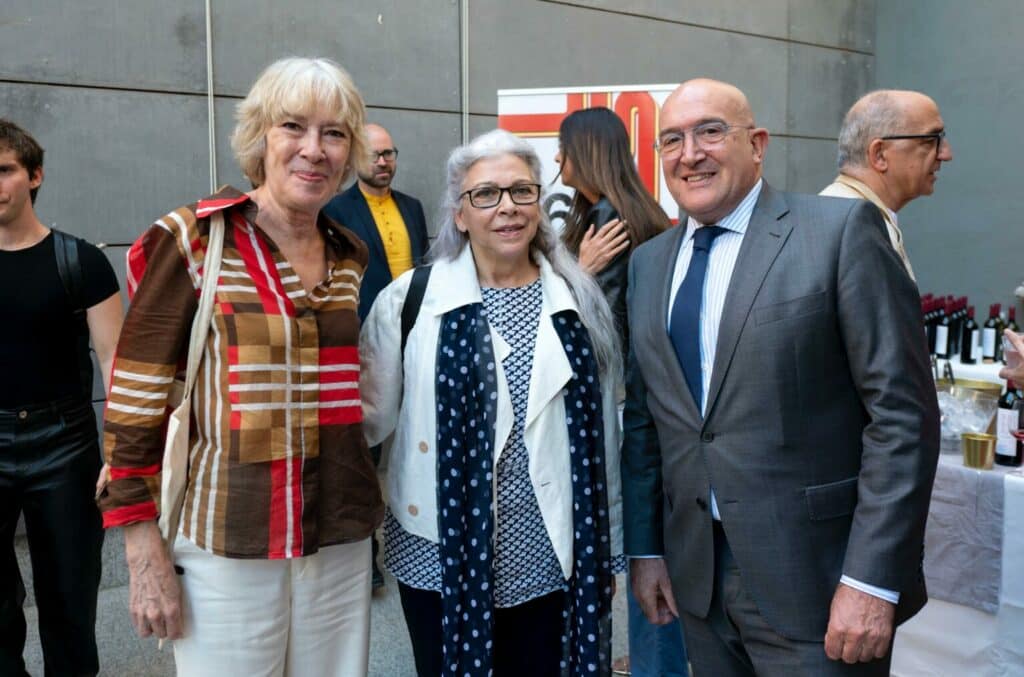
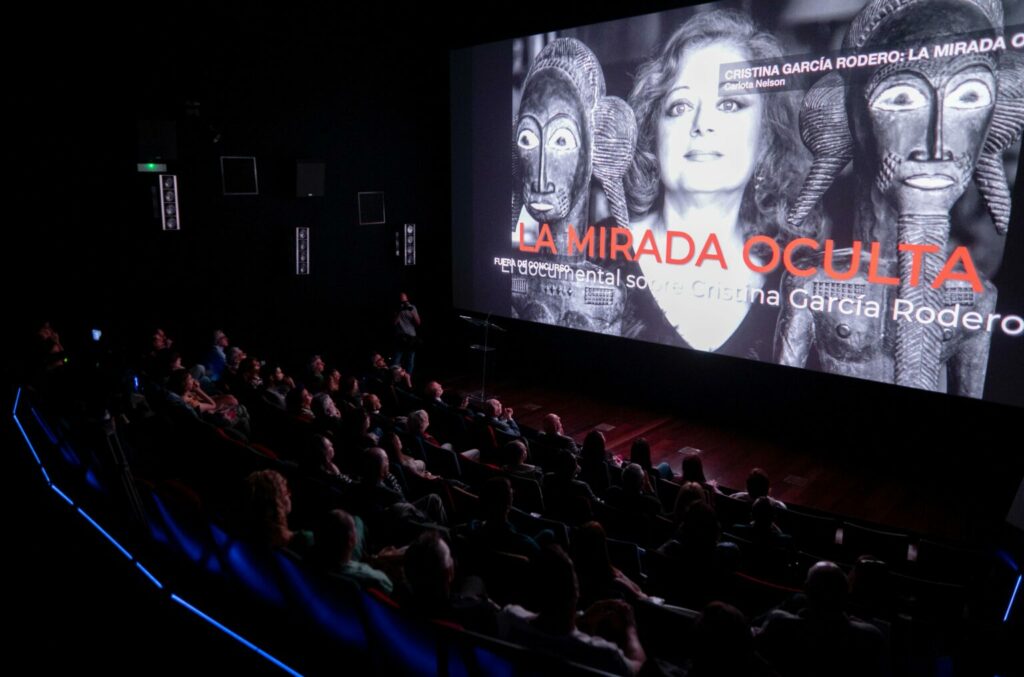
Cristina García Rodero, winner of the National Photography Award, the Eugene Smith Foundation Award in New York and the Fine Arts Medal of Merit, became the first Spanish artist to join the prestigious Magnum agency in 2005. The author of Lalibela, cerca del cielo, will receive this year at Seminci the Special Award for Artistic Creation, which will be accompanied by the screening in the Official Section, out of competition, of the work Cristina García Rodero: La mirada oculta (Cristina García Rodero: The Hidden Gaze), by Carlota Nelson.
As part of its Cine Gourmet section, the festival will award its Espiga de Honor to the winemaker from Bierzo, Raúl Pérez, a restless creator whose maxim is to make wines respecting nature. His commitment, embodied in his own style, has led him to place more than two hundred labels on the list of The Wine Advocate and to achieve 100 Parker points with his wine La Muria.
The presentation ceremony of the 68th edition was attended by Fernando Méndez-Leite, president of the Academy of Motion Picture Arts and Sciences of Spain, as host of the event; Jesús Julio Carnero, mayor of Valladolid, and Blanca Jiménez, councilor for Tourism, Events and City Brand; Ignasi Camós, general director of the ICAA; Valeria Camporesi, director of Filmoteca Española; Jose Andrés Torres Mora, president of AC/E; Yolanda Burgoa, deputy delegate of Education and Culture of the Provincial Council of Valladolid; Carmen Vaquero, vice-rector of Communication and University Extension of the University of Valladolid; and Juan Zavala, head of contents of DAMA, as well as José Luis Cienfuegos, director of the International Film Week of Valladolid.
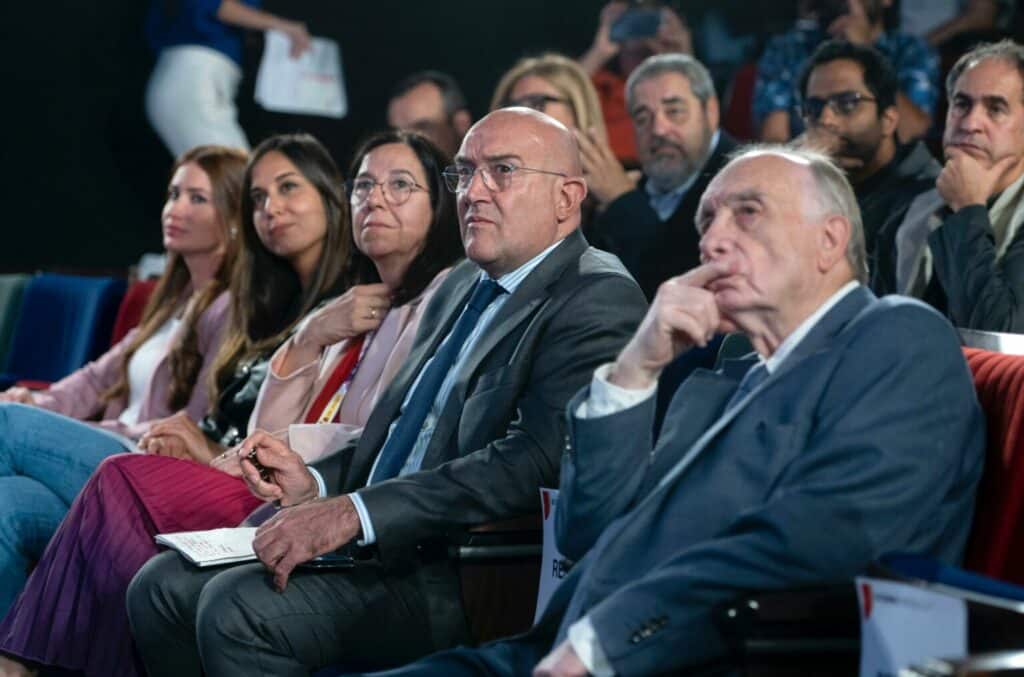
The 68th Seminci, which, according to its director, José Luis Cienfuegos, seeks to be a “space of vindication of the cinematographic heritage and commitment to new values”, will be the prelude to the Gala of the Goya Awards 2024, as recalled by the mayor of Valladolid, Jesús Julio Carnero, who stressed the indissoluble relationship that the city and cinema have maintained for almost seven decades thanks to Seminci, so that Valladolid “is always a city of cinema”.
“We are already seeing a Seminci that recovers its essence as an auteur film festival, but also with a very collaborative character, very dialoguing,” emphasized Carnero, who recalled that Valladolid is the protagonist of one of the premieres that will host the festival: Prime Video’s production Memento Mori, a thriller based on the saga created by César Pérez Gellida, the first two chapters of which will be screened at the UNESCO Valladolid City of Film Gala on October 24 at the Zorrilla Theater and will represent “a before and after” for Valladolid as a filming location.
Seminci, an exceptional film set for RTVE
During his speech at the event, which was opened by the president of the Academy, Fernando Méndez-Leite, who said that the Academy has always had a relationship with Seminci, and this year even more so due to the choice of Valladolid as the venue for the Goya Awards, Cienfuegos highlighted the important presence that Radio Televisión Española will have at the 68th edition. In this sense, the program Versión española, presented by Cayetana Guillén Cuervo, will be recorded on October 19 at the Calderón theater, the main venue of the festival, on the occasion of its 25th anniversary.
In this framework, the film Libertad, by Clara Roquet, will be screened, as well as her short film El adiós, awarded with the Espiga de Oro for best short film (2015), and the colloquium will take place with the presence of the director of the festival, the filmmaker herself and the protagonist, María Morera.
A quarter of a century is also the anniversary of the program De película, by Yolanda Flores, which on October 27 will be recorded at the Salón de los Espejos of the Teatro Calderón.
Cinema and music for the evenings
For the first time, the Seminci will have a complete musical offer thanks to the Alhambra Seminci Noche program, which will include nightly musical sessions at the Valladolid venues Bizarro and Kafka by groups and DJs such as The Garlic Phantoms, Funkforward, Pablo Pueblo, Virginia Díaz, Amable DJ, Fellows, Gerar (Fallen Idols), Melo Soho, Abraham Boba (León Benavente), El Meister, Los Estanques, Inkilino Comunista, Jotapop and Boydivision.
In addition, this edition recovers the concert starring the Orquesta Sinfónica de Castilla y León (OSCyL) which, under the baton of Christian Schumann and in a new collaboration with Seminci, will perform on Thursday, October 26 at 7:30 pm the music of the silent film The Little Brother, a 1927 American comedy directed by Ted Wilde and interpreted by Harold Lloyd.
Joan Maria Codina, one of the pioneers of Spanish cinema, will screen Lucha de corazones (1912), a rural drama ahead of its time and restored by Filmoteca Española with a live soundtrack by Abel Hernández, former singer, composer and guitarist of the now defunct group Migala. The screening can be enjoyed at the Teatro Zorrilla on Friday 27 at 5.30 pm.
Previously, on October 20, the Teatro Carrión will host the musical event Plena pausa, in which Jota, from Los Planetas, will provide a live soundtrack to a collection of short films and super-8 recordings by the accursed filmmaker Iván Zulueta, author of the legendary Arrebato (1978), an initiative that arose from Filmoteca Española and that the vocalist and guitarist of the Granada band, an admirer of the filmmaker from San Sebastian, did not hesitate to accept.
Giving voice to audiences and filmmakers
During the presentation at the Academy, Cienfuegos emphasized his intention to consolidate the Seminci as a space that gives voice to audiences and filmmakers, a point in which he referred to Alquimias, a section dedicated to the freshest, most dynamic, vibrant and original films by authors still unknown in Spain, and Memoria y Utopía, which, under the umbrella of the Spanish Presidency of the Council of the European Union and promoted by Acción Cultural Española, AC/E, will delve into the future of the restoration and dissemination of film heritage and, in parallel, will show titles that will allow the public to rediscover the history of cinema.

Both pillars, together with the usual sections of the festival (Official, Meeting Point and Time of History), make up a “whole” that should be conceived globally and not stagnant in order to strengthen the Seminci, said the director, who recalled the commitment to education and the consolidation of the festival as a meeting place and boost for the industry.
Also speaking at the ceremony was the director of the Institute of Cinematography and Audiovisual Arts (ICAA), Ignasi Camós, who expressed his conviction that the 68th edition will be one in which Spanish cinema “will shine”, which is a unique opportunity for the entire Seminci audience to “discover and highlight” the talent that our country’s audiovisual production treasures.
The director of Filmoteca Española, Valeria Camporesi, also took part in the event, stressing the importance of the Memory and Utopia section, with which the institution collaborates, projecting short films and practices from the period of the Instituto de Investigaciones y Experiencias Cinematográficas, “one of the most important historical collections of the Filmoteca Española”, and that it does so “in a very appropriate context for them”. They were also joined by the president of AC/E, José Andrés Torres Mora, and the vice-chancellor of Communication and University Extension of the University of Valladolid, Carmen Vaquero.
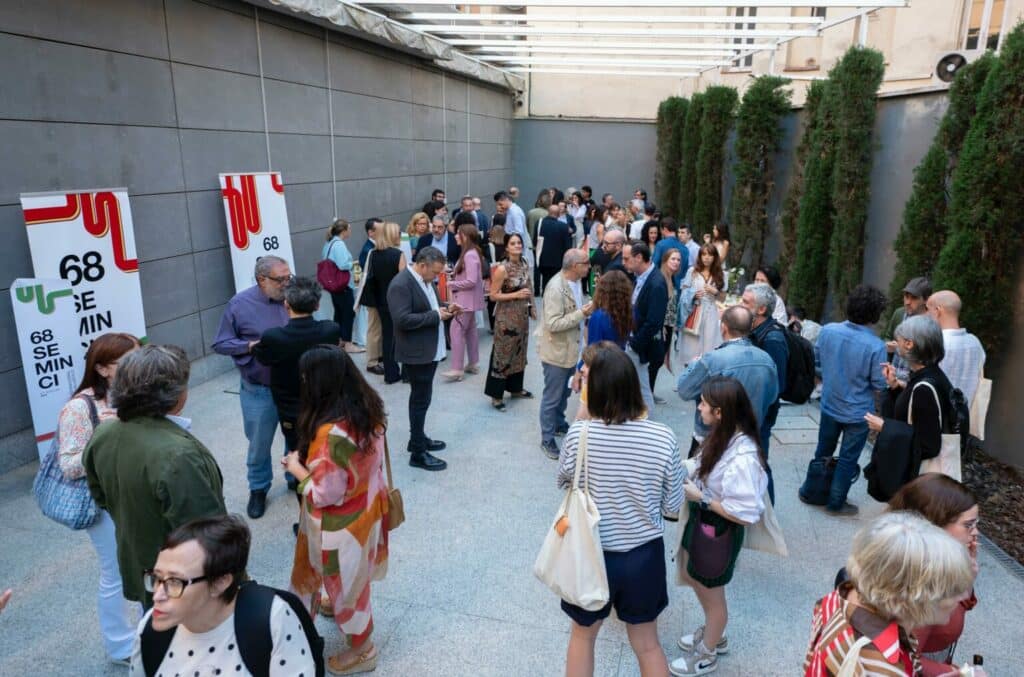



























![Logo Foro Cultural de Austria Madrid[1]](https://www.seminci.com/wp-content/uploads/2024/09/Logo-Foro-Cultural-de-Austria-Madrid1-300x76.jpg)








